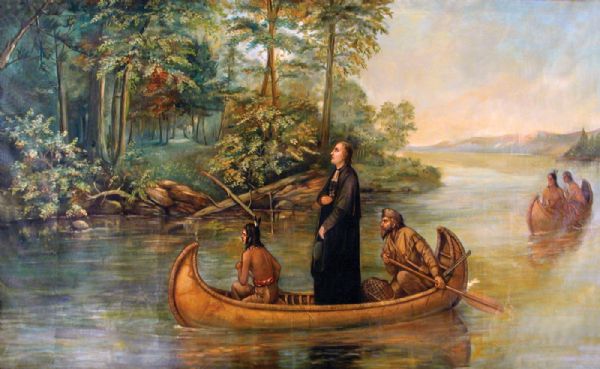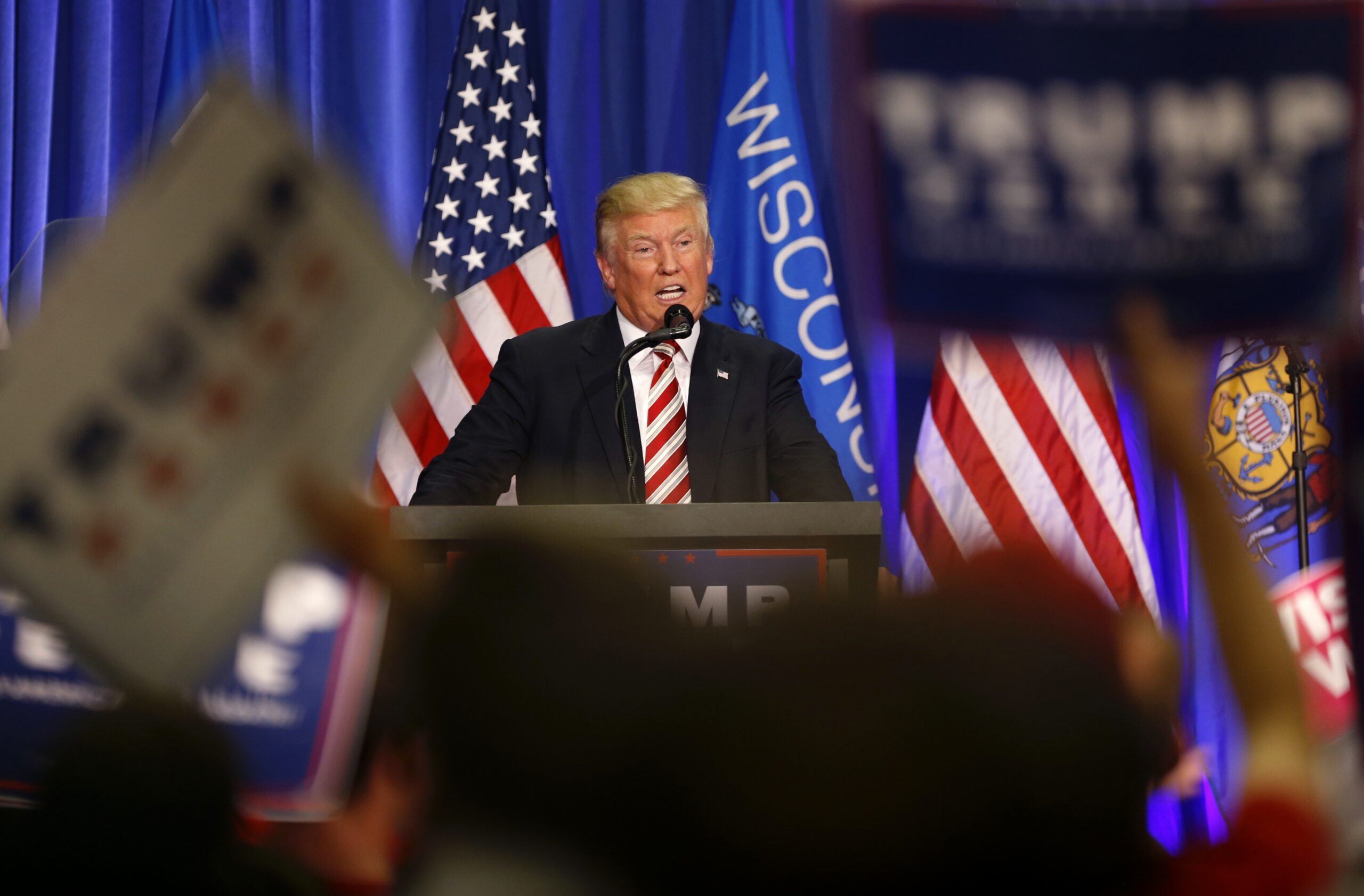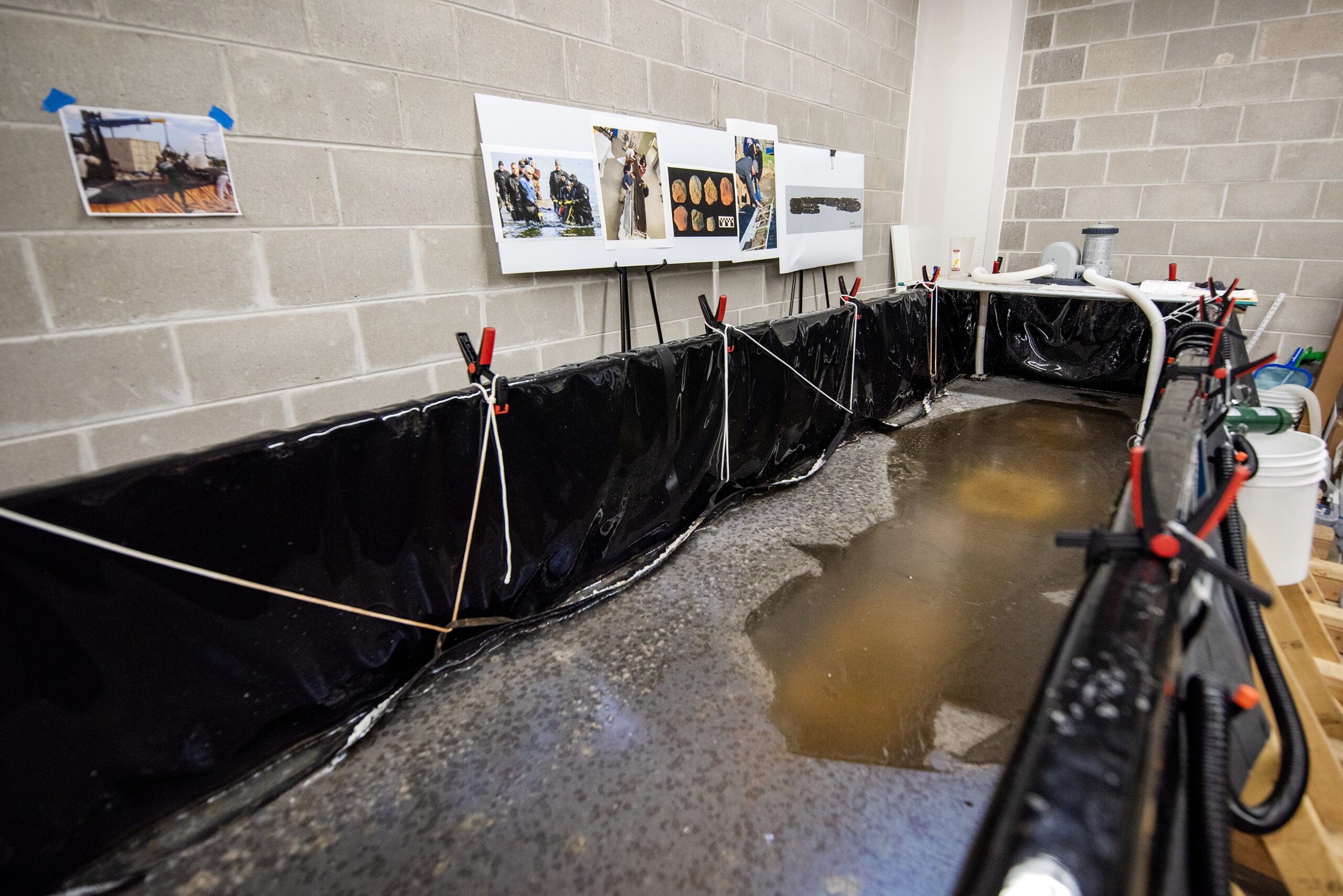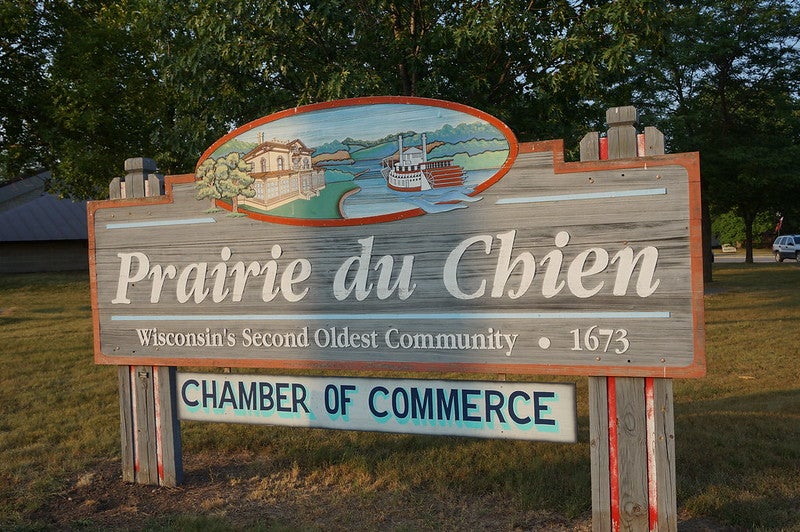Prairie du Chien will observe the 350th anniversary of Marquette and Joliet’s exploration of Wisconsin waterways this weekend.
Father Jacques Marquette, a Jesuit priest, and fur trader Louis Joliet set off on May 17, 1673 on a voyage for New France to explore the path of the Mississippi River. Their journey led to the European encounter of the Fox and Wisconsin rivers, and helped prove the Great Lakes and Gulf of Mexico were connected by water. The expedition opened the way to the first non-native settlements of the North American interior, including in Wisconsin.
The 350th Expedition Anniversary event in Prairie du Chien will be held June 16 through June 18 — the event marking the date the pair made it to Prairie du Chien on June 17, a month into their journey. The weekend combines historical events like canoe rides and a rendezvous with traditional activities found at summer festivals.
News with a little more humanity
WPR’s “Wisconsin Today” newsletter keeps you connected to the state you love without feeling overwhelmed. No paywall. No agenda. No corporate filter.
“We’re going to be celebrating Prairie du Chien because this was the beginning of Prairie du Chien,” the event’s social media director Martha Querin-Schultz said.
“In addition to historical reenactments of the expedition and Native American events, it is also occurring at the same time as the Prairie Villa Rendezvous (held annually in Prairie du Chien),” she said. “We are going to be holding art fairs, a carnival, historical tours, music, fireworks and a parade on Sunday.”
Event planners have been careful not to refer to the weekend as a celebration of the Marquette and Joliet expedition.
“It is a celebration of history, but it can also be kind of a dark moment in history because it changed the lives of the peoples that already lived here,” Querin-Schultz said, noting that Native Americans lived in the area thousands of years before the expedition.
Historians said calling it an observation, rather than a celebration, is the right approach to take.
“They didn’t really discover those rivers and lakes. There were natives who were here long before them. They finally found what the natives had known for a long time. That word discover is a tough term to deal with when you come to history because there’s almost always someone before you,” said fur trading re-enactor Randy Baustert of Elgin, Illinois.
“Marquette and Joliet mapped out a territory and told us what was out there. It was very important to the fur traders back in that time period because now they knew what was there,” said Baustert, who focuses on re-enacting the fur trade between 1600-1820.
Hoop dancing by Native Spirit, an entertainment company started in Arizona in 1997, will be the featured Native American events over the weekend. Organizers said the dancing is not a reenactment, but a glimpse of modern Native American culture.
“It’s a dance that was started a long time ago, and it’s been growing and evolving for generations to where now it’s a very popular style of dance,” said Nedallas Hammill, who will be performing.
Hammill is a top 10 World Champion Hoop Dancer this year and was the 2020 Teen World Champion Hoop Dancer. He said hoop dancing can mean different things to different tribes. The Wisconsin Ho-Chunk Nation uses the dance to tell the story of a warrior’s journey. The Navajo, based in Arizona where Hammill grew up, use the hoop dance to tell the story of children and as a healing dance.
Hammill’s father, Brian Hammill, founded Native Spirit and is also the police chief in the Village of Benton in southwest Wisconsin. Brian Hammill said they use the shows to entertain and bring cultures together.
“What was done (350 years ago) was a different culture coming over here and learning about the past. Were mistakes made? Absolutely. Are mistakes still being made today? Absolutely,” he said. “We celebrate life.”
Prairie du Chien is considered to be the second oldest Wisconsin city, founded in 1785, some 20 years after Green Bay — land Marquette and Joliet first encountered in 1673. The state Historical Society states the founding of the earliest Wisconsin communities is based on the arrival of the first permanent white settlers instead of when seasonal trading posts were established.
There is a lot of history in Prairie du Chien. St Feriole Island on the Mississippi River is home to Villa Louis, a National Historic Landmark operated by the Historical Society. It belonged to the Dousman family, early fur traders. It’s also home to the Mississippi River Sculpture Park which has six life-sized bronze statues featuring people who had some importance to the Prairie du Chien and the Mississippi River.
“The impact Marquette and Joliet had was literally and figuratively making the map. They pushed the known route from Montreal to the heartland of the nation. They determined what the course of the Mississippi River was. They identified the Missouri, the Ohio, the Des Moines, the Illinois and the Arkansas, critical rivers that would open the door for French conquest of the Upper Mississippi River,” said Michael Douglass, a Prairie du Chien historian who was director of Villa Louis for 30 years.
“They were the right people at the right time.”
Douglass said if there’s a piece of history from the Marquette and Joliet exploration he’d like to learn more about, it’s the five guides who were with them in the canoes.
“I believe every human being has an inalienable right to be proud of their heritage. The people of Prairie du Chien have a very long history of interaction with indigenous people and with life on the Mississippi River. They are rightfully proud of this,” Douglass said.
“But in recognizing the challenges, we acknowledge the fact that ultimately our history with indigenous people in the U.S. has been very challenging and difficult.”
Wisconsin Public Radio, © Copyright 2026, Board of Regents of the University of Wisconsin System and Wisconsin Educational Communications Board.





